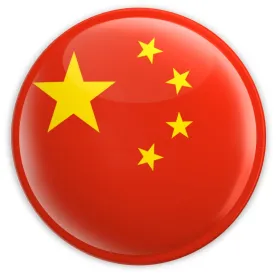Year 2020 definitely is a milestone year for China in building up and strengthening its regulatory legislation in the field of international trade. Following the Regulations on Unreliable Entity List (“UEL”), the Export Control Law came out on October 17 and will come into effect on December 1, 2020. Obviously, this Export Control Law of the PRC (“Export Control Law”) is one of the most important bricks to China’s regulatory Great Wall in the ongoing trade war to protect its key national security and interests.
Here is our quick bird's eye view of this new Export Control Law and some preliminary thoughts on its possible impact to the future of cross-border transactions and multinationals’ China operations.
Enforcement Targets and Enforcement Authority
Article 2 of the Export Control Law defines the controlled items to be any (1) dual-use items, (2) military products, (3) nuclear, (4) other goods, technology and services relating to the protection of the national security and interests and fulfillment of non-proliferation international obligations, and (5) any relevant technology data (collectively, “Controlled Items”). The enforcement targets under the Export Control Law include citizens, business entities, and other organizations that are related to any exportation, services vendors, foreign importation, and end users of any Controlled Items.
Besides the definitions of military products and nuclear which are highly regulated, the scope of the dual-use items is worthy of attention – any goods, technology or services with both civil usage and military function (or potential to improve military potential) are subject to this newly established export control mechanism under this new law.
Similar to the enforcement mechanism established under the UEL, the enforcement authorities under the Export Control Law consists of multiple governmental agencies at both the central and provincial levels of government bodies. The departments of the State Council and the Central Military Commission are the key leading governmental agencies to spearhead the enforcement while a “coordination mechanism” will be established under these governmental agencies to coordinate and monitor the enforcement and facilitate information sharing among them.
Enforcement Methods
Generally, the “control” under the Export Control Law is well reflected in both controlling the transaction of Controlled Items and controlling the parties to transact such Controlled Items:
A. Controlled Items List and Export Permit
The Export Control Law indicates that a Controlled Items List will be decided, published, and updated by the enforcement authorities, and any exportation of the Controlled Items listed in such Controlled Items List will be subject to export permit procedure. According to Article 10 of the Export Control Law, such Controlled Items List will include both Controlled Items that are totally prohibited to be exported outside China, and those prohibited to be exported to certain specific countries, regions, organizations or individuals. Besides the Controlled Items List, the authorities also have power to decide and publish temporary control on items outside of such Controlled Items List, of which the temporary control term does not exceed 2 years but is subject to further review and decision on whether any extension might be necessary.
Under the export permit procedure, the export operators will need to register with the enforcement authorities for qualification of the export operations of any Controlled Items. Notably, such export operators are required under Article 14 of the Export Control Law to establish export control compliance procedures for the purpose of being qualified.
B. Controlled List of Importers and End Users
Together with the practice of the Controlled Items List and Export Permit from China’s exportation angle, the Export Control Law also establishes a Controlled List of Importers and End Users, under which the enforcement authorities could further exercise control over the buyer side of trading of any Controlled Items. Generally, any trade of Controlled Items with any importers or end users on such List will be prohibited or will be subject to more complicated examination and review by the enforcement authorities, although such importers might apply to the enforcement authorities to be de-listed after the applicant’s efforts of correction is accepted by the authorities.
Notable Liabilities
The liabilities under the Export Control Law range from administrative penalties to criminal sentences against different conduct of violation applicable. The administrative liabilities include cease of illegal operation, confiscation of illegal income, and monetary penalty up to 10 times the amount of the illegal income. In case of export operations violating the Export Control Law, it is possible that its operation permit of Controlled Items will be suspended for 5 years, and the related management team might face the prohibition of any engagement of business operations for the same term in such industry.
It is worth noting that the Export Control Law will be applicable to chase liabilities, whether they may be administrative or even criminal, of any foreign organization or individual that violates such Export Control Law. The last Article of the Export Control Law provides that this Law is of the legal base for reciprocal measures to be taken by the PRC government if any country or region abuses export control measures harming the national security and interest of the PRC.
Impacts
The Export Control Law obviously strengthens and improves the legal framework of the PRC for its export control and the national security protection laws and regulations. It generally establishes a mechanism for the PRC government agencies to enforce certain measures for the reasons such as promoting its national security or its interest in the international trade or all kinds of energy and high-tech industries. Once this Export Control Law takes effect, its provisions are likely to have impacts on not only the domestic companies in export industry but also multinational companies for their daily compliance work.
-
Contractual language regarding compliance of the Export Control Law needs to be added into external agreements. Similar to those often seen in the U.S. law related compliance clauses in agreements, multinationals need to work with its external counsels for applicable languages under this Export Control Law to make sure its contractual counterparties (e.g., vendors, suppliers, customers, and related third parties) are in compliance with the requirements under the Export Control Law as part of the traditional representations and warranties, as well as the covenants. We also anticipate that such PRC Export Control Law representation and warranty will soon become a common language in corporate and intellectual property transactions involving Chinese parties or assets.
-
Any companies involved in business of international trade with supply capability located in China will need to establish Export Control Law compliance mechanism and procedures. These companies need to (i) pay attention to the then applicable Controlled Items List and Controlled List of Importers and End Users, and prepare internal alert as soon as such Lists are updated to include any products of which such companies are engaged in the business, (ii) regularly review current customers and end users to avoid direct or indirect sales to any party included in the Controlled List of Importers and End Users, (iii) identify and assess any possible products that could be deemed as Controlled Items outside of the Controlled Items List (pursuant to Article 12 of the Export Control Law), and (iv) establish an internal team to consult and communicate with the enforcement authorities when and where appropriate and necessary.
-
With issuance of multiple regulatory laws and regulations (including the Export Control Law and the UEL), internal compliance training will be a necessary action to take for all in-house and compliance departments at multinationals so as to consider and establish a proper program for their business teams. We predict that such compliance training will be a self-evaluation process through which companies could defend themselves as their efforts to comply with the Export Control Law.




 />i
/>i
